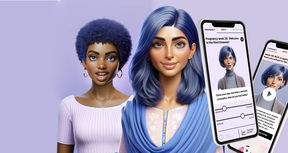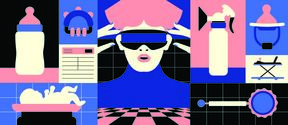Supporting the partner as well
Preliminary results show that the fear of childbirth decreases in app users as they approach labour, while it seems to increase in the control group. The results are also promising for caesarean sections.
‘None of the individuals in the treatment arm expressed a desire for a caesarean delivery, while 10% of participants in the control group opted for caesarean sections due to fear of childbirth’, says Pyykönen.
As part of a normal pregnancy, childbirth brings up strong feelings, and it’s common for a fear of childbirth to increase as labour approaches. Even though it is common, especially when severe, fear of childbirth is a risk factor for postpartum depression. Research also shows that such fear predisposes the birthing parent to a bad birth experience, which can subsequently lead to a greater chance of postnatal depression.
Many psychologists and therapists have said that the app could be useful in any therapeutic setting, yet the researchers are also interested in lateral approaches.
‘The next step is to develop a tool to support the birth partner. The role of the support person and their preparation are crucial in childbirth. There is a lot of lack of information and uncertainty also for the partner, and that affects the outcome of the birth,’ says Pyykönen.
It is hoped that the Natal Mind innovation could also be exported to African markets if funding is available, with clinicians in South Africa and Rwanda already indicating strong interest in the pilot.
‘According to our African partners, mental health care in pregnancy and postnatal care is very poor in these countries. The problem is recognised, but resources are limited, which is why there is a high demand for digital health services,’ says Järvelin.















